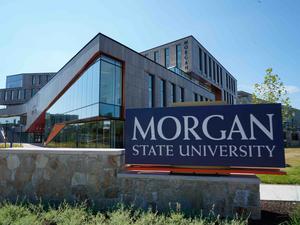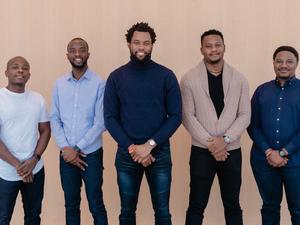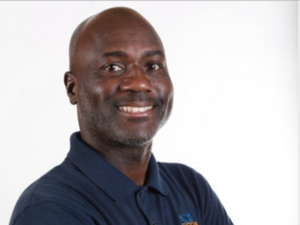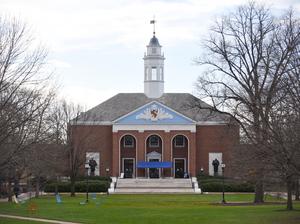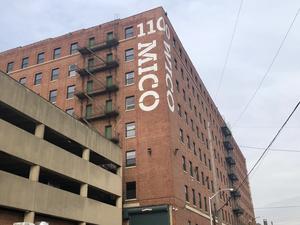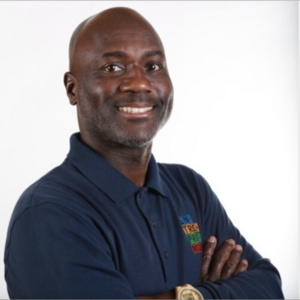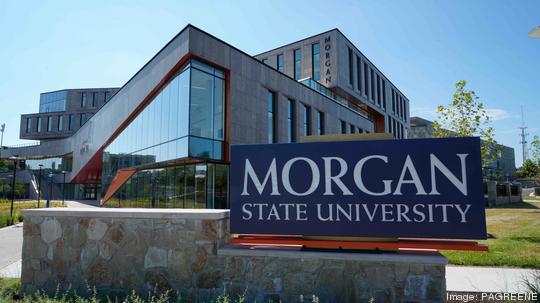
Morgan State University will invest $7.5 million to train diverse groups of students for promising careers in the technology and defense sectors, while also aiming to solve timely challenges faced by the U.S. military.
The funding is coming to researchers at the college's School of Computer, Mathematical and Natural Sciences through a five-year grant from the U.S. Department of Defense. It will be used to found a new research center at Morgan State's Baltimore campus, which will be run in partnership with Johns Hopkins University and Hopkins' Applied Physics Laboratory (APL). Scientists at the Adelphi Laboratory Center and Aberdeen Proving Ground research centers of the U.S. Army will also contribute to the research work done there.
The new Center for Advanced Electro-Photonics with 2D Materials will be dedicated to research and potential uses of two-dimensional materials, or those consisting of a single layer of atoms. Ramesh C. Budhani, a physics professor and director of the new center, gave examples of some possible applications of 2D materials in clean energy, electromagnetic sensing and information processing the center will be investigating.
- Solar cells, which convert sunlight into electrical energy, that are more efficient and long-lasting than current technologies.
- Extremely sensitive infrared light detectors, which could be used by soldiers to determine if they are in the path of infrared light that may be coming from enemy tech, such as a sniper's scope.
- Thermoelectric devices, which convert heat into electricity, and could be used to turn wasted heat like that which comes out of a vehicle's tailpipe into useable energy, or to create very portable thermoelectric coolers that could help soldiers maintain certain equipment they need to stay cool.
The research center focused on electro-photonics is believed to be the first of its kind at any Historically Black College or University (HBCU), Morgan State said. Budhani said beyond its work creating new technologies out of 2D materials, the center's "most important objective" will be to train more underrepresented students — including undergraduates, graduates and even high schoolers — in advanced scientific research, and to hopefully motivate some of them to pursue careers in science and tech or defense fields.
Students who work at the center will be able to work closely with researchers at the Army labs and at APL, and may be eligible for some extra financial support. Morgan State and Hopkins students will be able to participate in summer internships and joint annual workshops, and Budhani said the center will also bring in area high school students, to help expose more young people to scientific research and potential career paths even before they start pursuing a degree. Grant funding will support internships for between 10 and 15 undergraduate students, as well as five area high school and community college students.
The Center for Advanced Electro-Photonics will be located in the Richard N. Dixon Science Research Center on Morgan State's campus. Budhani said it is currently in the process of building out operations, acquiring necessary equipment and hiring up to 12 undergraduates, six graduates and a handful of post-doctoral scientists. The center will also host six faculty colleagues from Morgan State, two from Hopkins and two from APL, he said.
Morgan State's existing research-based relationships with Johns Hopkins, as well as Hopkins' and APL's experience in advanced materials research made the institutions the ideal partners for the center, Budhani said.
Susanna Thon, co-principal investigator and associate professor of computer and electrical engineering at Hopkins, said expanding that will help create new career pathways for students, increase research capacity at both schools and potentially attract more top scientific talent to Baltimore.
